How To Wash Pillows & Dry Them So They're Not Lumpy
Here are step by step instructions for how to wash pillows, and then how to dry them so they're not lumpy.
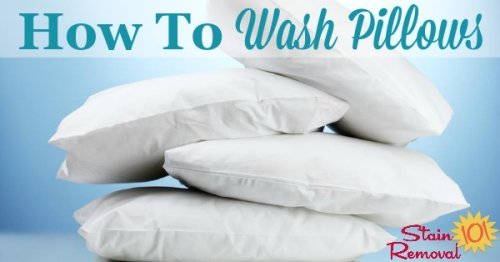
We put our heads on our pillows each and every night, often breathing right near the pillow as well. That means your pillows get dirty with this constant use, both with oils and dirt from our head and face (plus our drool, etc.), but also with allergens from dust mites and dead skin cells, that we then breathe in constantly.
Therefore, it's no surprise that your pillows need to be washed regularly, every three to six months. (The pillowcases should be washed even more frequently, at least weekly, if not twice a week.)
{Related Post: How Often To Wash . . . Everything, Including Printable Cheatsheet}
Regular washing will keep the allergens at bay, and also help you sleep more comfortably since you'll be resting your head on something clean and fresh.
Prevention Of Dirt & Allergens Is Best
Before I begin the instructions for washing pillows let me point out that not allowing as much dirt and allergens to get into your pillows will make this whole process of cleaning them much simpler, and also allow you not to have to wash the pillows as frequently to begin with.
When you get a new pillows I suggest you also purchase allergen proof covers for them. These are covers that zip up around the pillow. They do not replace the pillowcase, but instead are in addition to it.
While, as I mentioned, you need to wash pillowcases once or twice a week, you can wash the allergen proof covers less frequently, every month or two. These covers are another layer of protection that keeps dust mites from working their ways into your pillows, which can help lessen allergy issues, and generally keep things cleaner.
How To Wash Pillows In Your Washing Machine
Step 1: Confirm Your Pillows Can Be Washed
Most pillows can be washed in your washing machine, with a few exceptions. Many pillows are made of synthetic materials, such as polyester, which is safe to wash.
Most notably do not wash foam pillows, or those filled with buckwheat hulls.
You can wash most down or feather filled pillows that are relatively new. But to make sure yours are washable check the tags on your pillows, since some of the older down pillows can't be washed. If the pillow's care instructions says "dry-clean only" believe it.
Step 2: Set Your Machine Up For Pillow Washing
You should wash two pillows at a time to keep the load balanced, and also to allow a full, but not overly full, washing machine, which will help both pillows get cleaner.
Set the machine on the gentle cycle, and use warm water.
You can use a mild detergent if you have one, such as Ivory Snow if you can find it, but any delicate wash detergent will work.
However, many of these delicate washes have a scent, and if you have sensitivity to scents having a scent right up in your face all night long deep in the fibers of your pillow will not be good. Therefore, you may instead want to use a hypoallergenic scent free detergent for washing pillows. Be more careful not to use detergents with enzymes if you are washing down or feather pillows.
The important thing is to make sure the detergent completely dissolves, which means for this job liquid laundry detergent will probably work better, since it is less likely to leave a residue than powdered detergents.
In addition, you don't want to overuse detergent, so be sure to use it sparingly.
Step 3: Wash Pillows On Gentle Cycle & Do Extra Rinse
Then go ahead and wash your pillows in your machine on the gentle cycle.
You want to make sure all of the detergent is removed from the pillows so make sure to either program into the machine an extra rinse, or manually add an extra rinse cycle for your pillows.
How To Dry Pillows So They Don't Get Lumpy
Once the wash cycle is completed the pillows can be dried in the dryer on a low heat or air fluff setting.
In order to keep the pillows lump free toss a couple dryer balls or tennis balls (wrapped in a clean white cotton sock to avoid dyes being transferred) in with them.
Avoid drying your pillows on high temperatures as this can break down the filling in the pillows, wearing them out much faster. High heat can also cause lumpiness in polyester filled pillows.
Alternatively, the pillows could be hung to dry outside.
Make sure the pillows are thoroughly dry before placing them back on your bed, because otherwise they could develop mold or mildew inside which is definitely not something you want to be breathing in.
You may need to run the pillows through a couple of dryer cycles, especially when using lower heat, to get them thoroughly dry, especially deep inside.
If there are any feather clumps still remaining in a down pillow, it isn’t dry. Run through 2-3 cycles to make sure they are fully dry to be on the safe side.
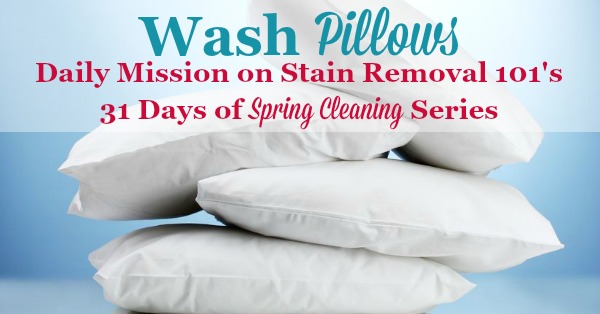
Thanks For Visiting My Website: Grab Your Free Gift!

Hi, I'm Taylor, a busy mom with 3 kids, so I have lots of hands on experience with house cleaning, laundry and my fair share of spots, spills and other messy catastrophes. Thanks for visiting my site.
I update the website all the time with tips, tutorials, cleaning recipes, reviews of products from readers like you, and tests I've done on various cleaners, removers and laundry supplies.
I'd love to give you a gift! When you subscribe to my free weekly newsletter you will receive a free printable laundry stain removal chart that you can reference as needed.
I hope you enjoy this gift, and stop by again soon!
Related Pages You May Enjoy
Laundry Tips & Tricks For Busy Moms {And Everyone Else Too!}
How To Clean Anything {A Room By Room Guide}
31 Days of Spring Cleaning Challenge
Don't Forget These 10 Things When You Deep Clean Your Bedroom
Go From How To Wash Pillows To Home Page
There are affiliate links on this page, and if you purchase a product through them I receive a small commission. Purchasing through my links costs you nothing extra, but helps support the free information provided on this site and my family. To learn more please see my product review disclosure statement.
CAUTION: This website is provided for informational purposes only. It is provided as is, without warranties or guarantees. Some stains and messes just won't come out, and are permanent. Further, some cleaning methods can harm your item, so if what you want to clean or launder is sentimental or expensive call a professional. See disclaimer of liability for more information.
Popular Laundry How To's
How Often To Wash Everything {With Printable}
Fix Bleeding Dyes Or Dye Transfer
Let's Stay Connected!
Get Free Email Updates
(and get a FREE printable)
Related Pages
 Detergent Reviews & Information
Detergent Reviews & Information
 Visit Household Management 101
Visit Household Management 101
 Visit Home Storage Solutions 101
Visit Home Storage Solutions 101
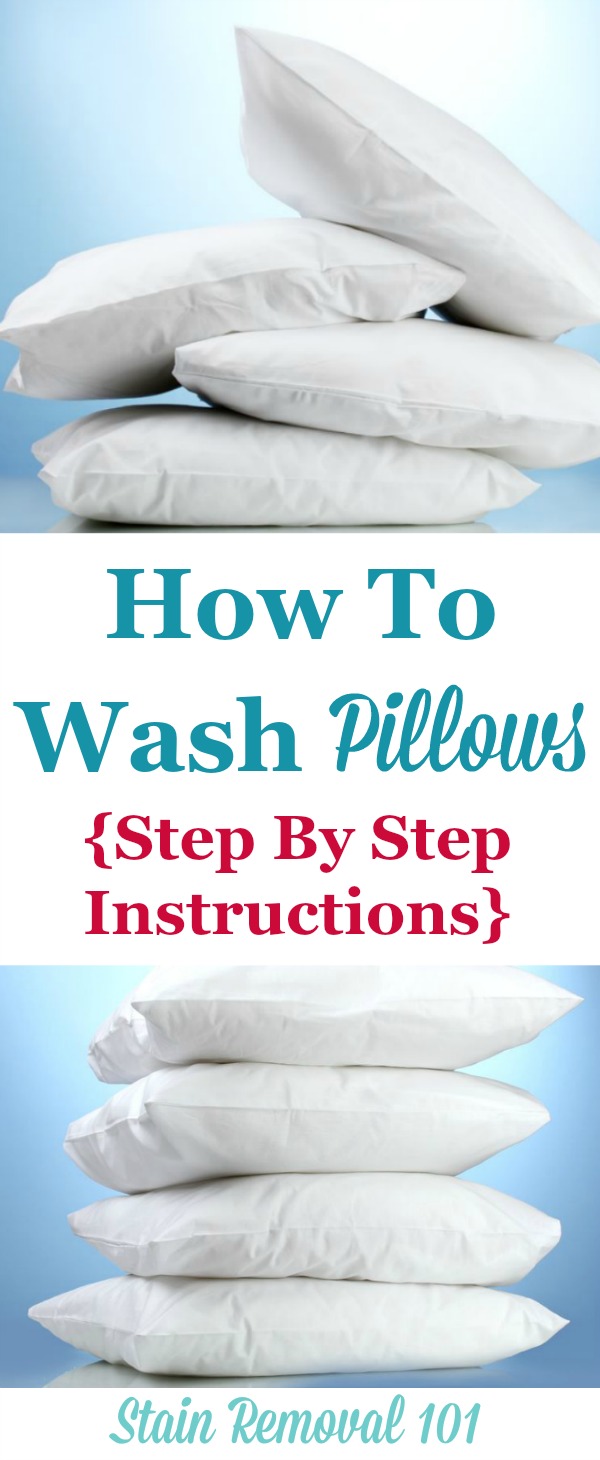

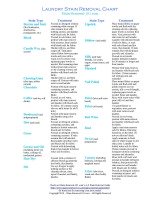
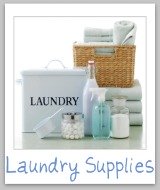
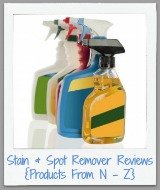
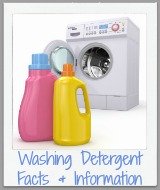

Share Your Comments, Tips & Ideas